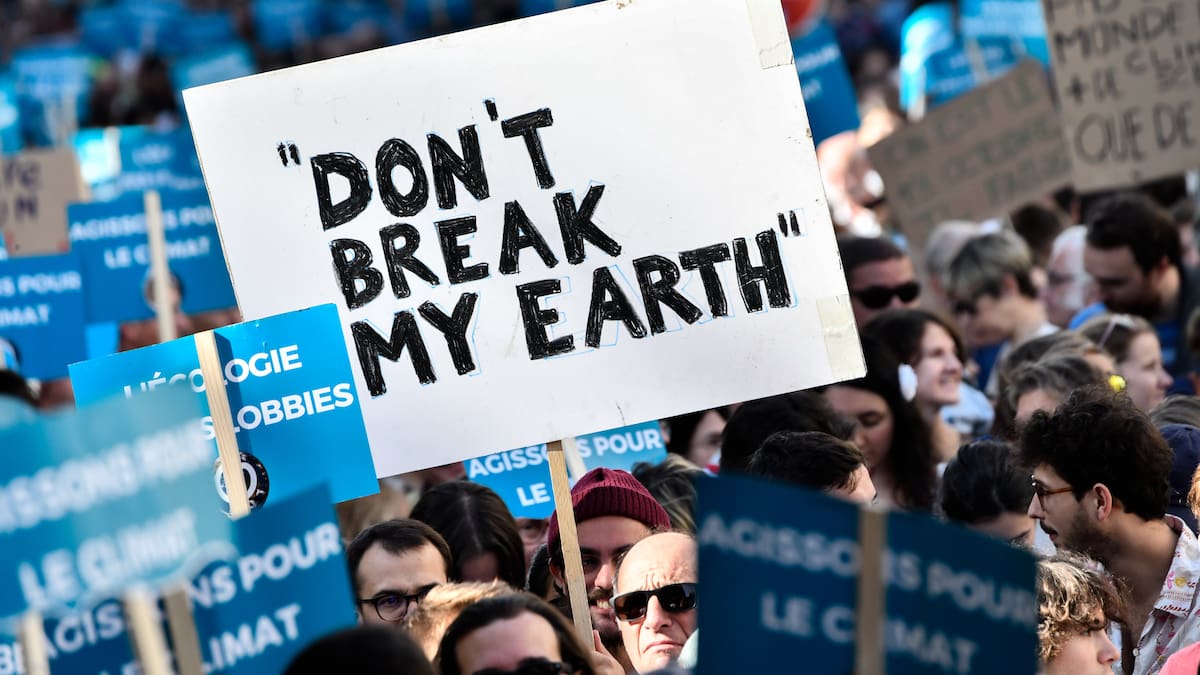Unfortunately for NZ First, floating is not announcing. NZ First had been advised to adopt the policy before the election – seems to want to – but Act gazumped it.
ACT and NZ First are disputing who first proposed withdrawing from the Paris Climate Agreement. Photo / Mark Mitchell
Yet, the fact that they’re publicly battling it out over Paris shows they both realise they’re on to a winner, especially in rural New Zealand where both parties are doing well.
Pulling out of Paris will only become more popular the closer we get to 2030. That year, we’re supposed to meet our first emissions target, but we won’t, and that’s going to be expensive.
At last count, we’ll have to pay $30 billion as a sort of penalty for falling short. We’re definitely falling short, that’s not up for debate. By how much is still being worked out.
Once it’s worked out, we basically pay the money to other countries to plant trees on our behalf to offset our emissions.
We’re obviously never going to pay that money. There’s no way taxpayers would allow that happen: $30 billion is enough to pay for Corrections, the Defence Force, Police, and Customs about three times over.
Paris Climate Agreement exit: ACT and NZ First in public spat over who first suggested pulling out. Photo / Getty Images
From next year we’ll have a pretty solid clue as to whether we’re paying up or not. Four years out from 2030, the expense should appear in Budget 2026 projections. It won’t.
That will undermine the Paris Agreement and illustrate that it’s failing. Which, of course, it is.
The US has pulled out, effective next January. The UK will pull out when the Conservatives eventually take power. China pretends to care but keeps building coal power plants. So does India.
In that list are three of the world’s biggest emitters.
The Net Zero Banking Alliance has fallen apart this week. Air NZ ditched its climate targets this year. So, it seems, has Microsoft and BP and Walmart.
NZ can’t afford to pull out. Being one of the first would probably hurt our clean, green reputation. Our strategy should really be to hide in the pack.
Either wait – with others – for the thing to collapse around us. Or quietly – with others – simply fail to meet targets.
The problem with either strategy will be public pressure. Voters are cottoning on to how much they’re being stung for climate initiatives.
We’re spiking our own electricity prices every time we burn coal at Huntly during the winter (which is more often these days). We don’t have to do that. We’re doing it to be nice to the climate.
ACT and NZ First dispute who first proposed a Paris Agreement withdrawal. Photo / Getty Images
We’re paying $1400 per carbon tonne to ship Auckland’s food waste to Reporoa instead of just dumping it in the landfill and buying a $50 carbon credit. We don’t have to. We’re doing it to be nice to the planet.
The Waikato Regional Council has to find $330m to buy electric buses because the rules force it to.
The planet is actually not better off. We’re still burning coal and trucking food scraps 260km down the road. We just feel better about it.
For now, that sentiment is keeping a majority of voters wedded to the Paris Agreement. But it will wear down. Act and NZ First are banking on it.
Sign up to Herald Premium Editor’s Picks, delivered straight to your inbox every Friday. Editor-in-Chief Murray Kirkness picks the week’s best features, interviews and investigations. Sign up for Herald Premium here.

